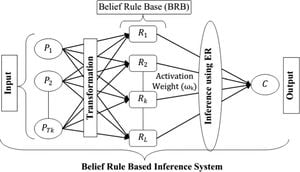The study evaluates the effectiveness of various treatment modalities for resectable gastric cancer (GC) and gastroesophageal junction (GEJ) tumors, aiming to establish survival outcomes linked to these therapies over the decade from 2010 to 2020. This is significant due to the ambiguity surrounding the best therapeutic strategy for GC and GEJ cancers, coupled with high mortality and low survival rates for affected patients. It aims to shed light on the most effective treatment options among neoadjuvant chemotherapy, neoadjuvant chemoradiotherapy, perioperative chemotherapy, and adjuvant treatments. The study draws on data from the National Cancer Database, analyzing overall survival rates and treatment trends, which could lead to improved clinical practices and outcomes going forward.
The analysis focuses on treatment modalities for resectable gastric cancer and GEJ tumors, comparing overall survival associated with neoadjuvant chemotherapy, neoadjuvant chemoradiotherapy, perioperative chemotherapy, and different adjuvant therapies. It finds perioperative chemotherapy (PC) associated with the highest median overall survival (86.80 months).
Multiple researchers conducted the study, associated with the Cleveland Clinic and other cancer institutions. The study utilizes data from the National Cancer Database.
The study analyzes treatment trends and outcomes from 2010 to 2020, with the publication date indicating completion and analysis within the 2025 timeline.
The data originated from the National Cancer Database, which collects information from cancer treatment facilities across the United States.
The rationale behind the study is the need to address the lack of consensus on optimal therapy for resectable gastric and GEJ cancers and to improve survival rates amid varying treatment approaches.
The researchers utilized a retrospective cohort study design, analyzing patient data to evaluate survival outcomes, employing techniques like Kaplan-Meier survival curves and multivariable Cox regression models.
The study revealed increasing trends for neoadjuvant chemotherapy and perioperative chemotherapy over the decade analyzed, highlighting notable increases of 11%.
"Patients who received perioperative chemotherapy had the highest median overall survival of 86.80 months."
"Chemoradiotherapy had worse overall survival than both perioperative chemotherapy and neoadjuvant chemotherapy."
"National data shows low utilization rates for perioperative chemotherapy, even though it correlates with improved outcomes."
Here, the article will present the core findings, discussing the survival outcomes associated with various treatment modalities and the impact of treatment trends. Key quotes will be included to reinforce the findings.
The article will summarize the study’s conclusions about treatment efficacy, the need for adherence to recommended practices, and suggest future directions for research and clinical protocols to improve patient outcomes.



